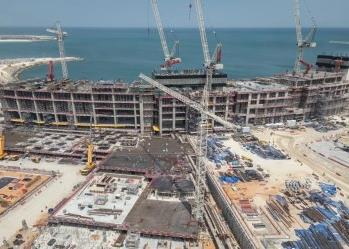
Force and the gun are coming out on top from this year’s turmoil in the Arab world
For those with a taste for a seriously injured man being tormented and then murdered, Muammar Gaddafi’s end was a moment to savour. It is, therefore, appalling that so much pleasure has been expressed at the death of the Libyan leader on 20 October. It was ghastly brutality and a crime that ensures many of the mysteries of Gaddafi’s rule will never be explained.
Jim Swire, father of one of the victims of the 1988 Lockerbie bombing, had every reason to celebrate Gaddafi’s death. He denounced the killing and lamented the loss of the most knowledgeable witness to the conspiracy that took his daughter’s life.
This has been described as Libya’s Ceausescu moment, a reference to the summary execution of Romania’s Communist dictator following the sudden collapse of his regime in 1989. There is at least one compelling parallel. Many that benefitted from Gaddafi’s rule joined the winning side at the last minute. The man who knew most about their involvement in his crimes has been forever silenced.
It’s too soon to reach conclusions about Libya’s future. It has oil and a small population and should be as wealthy as Kuwait. But Iraq has oil and look at it now. The hard part of changing Libya is only starting.
Gaddafi was deposed by NATO not the rebels. To achieve that goal, weapons were distributed with reckless disregard for the long-term consequences. The idea these will be returned or permanently decommissioned is fanciful. Some NATO leaders have declared the conflict’s over. It’s as likely that rivals seeking the spoils of Libya’s civil war are preparing for the next round of fighting.
UK Foreign Secretary William Hague said in television interviews on 20 October that the NATO mission in Libya is not complete. The new regime’s calling for the foreign involvement to continue. Those that know realise a rising that became a civil war could descend into chaos. NATO must mend what it has expensively broken.
There is a gap between what we are being told should happen in Libya and what could ensue. It’s a form of cognitive dissonance that has characterised the portrayal of events in the Middle East since demonstrations started on Arab streets. The Arab Spring is a phrase confected by headline writers to homogenise events in countries with little in common apart from language. It sounds good. But the facts tell a different story. At least 50,000 Libyans have been killed or injured in less than nine months. That’s equivalent to almost 500,000 people in the UK, a higher casualty rate than Britain suffered in any equivalent period in World War II.
State violence and repression in Syria and Yemen have increased, not declined. Bahrain has descended into sectarian authoritarianism. Earlier this month, dozens were killed and injured in intercommunal violence in Cairo. It’s a litany of human misery with no foreseeable end.
Governments in the rest of the region have strengthened their grip on power. Egypt and Tunisia let their people assemble in public places and their regimes paid the price. That’s not going to be allowed to happen again, even in post-Mubarak Egypt.
The sole indication that 2011 is the start of something better has come with the elections held on 23 October. The winner is expected to be an Islamist party that has been deemed to be moderate. We shall see.
Meanwhile, the foundations of the wider Middle East status quo have been dangerously undermined. Alarmed by the fall of Hosni Mubarak, guard-dog of its peace treaty with Egypt, and conscious that Arab public opinion is violently hostile, Israel is contributing to the cauldron that the region could quickly become. Israeli Prime Minister Benjamin Netanyahu, uncritically backed by US President Obama, denounced the call in the UN last month for the establishment of a Palestinian state. Many Palestinian prisoners freed for an Israeli hostage last week have been deported to Gaza, adding further fissile human material to a tormented community.
Conspiracy theorists detect Israel’s hand in fresh PKK attacks in Turkey. The Turkish government’s support of the Palestinian cause and alignment with the new forces emerging in the Arab world is a strategic reverse for Israel. Having to deal once more with determined Kurdish guerillas will hinder Turkey’s drive to become a regional power.
And then there is Iran. The notion that an attack could be successfully carried out against Iranian nuclear facilities is barely rational. It is at least as likely that it would strengthen the Iranian regime and destabilise the region. US vice-president — and nitwit-in chief in the US administration — Joe Biden said last week that no option is off the table when it comes to Iran. This is hogwash. The reality is that Western strategy is to contain and weaken Iran, foment internal disorder and hope for something to turn up. It won’t work. But it is better than war.
In 1919, the victors in World War I gathered in Paris to build a new world order. The result in the Middle East 92 years later is a divided region that is armed to teeth against external foes and internal enemies. It is regularly used by the powers that created the mess in the first place to test their latest military technology and doctrines. Libya was smashed up by Italy in 1922-1943; wrecked by the British, Germans and Italians in World War II and pounded by a military alliance backed by all the above in 2011. If this is progress, then it looks like the past.
Those that forecast well-intentioned street demonstrations designed to bring about regime change will end tragically have had their fears confirmed by the cruelty inflicted on Gaddafi. Brute force and the gun are once more on top in the Middle East. If this is spring, then — perhaps — summer should never come.
You might also like...

Saudi economy contracts in Q1 2024
07 May 2024

Kuwait plans electric vehicle strategy
07 May 2024

Aramco first quarter profit drops by 14.5%
07 May 2024
A MEED Subscription...
Subscribe or upgrade your current MEED.com package to support your strategic planning with the MENA region’s best source of business information. Proceed to our online shop below to find out more about the features in each package.





